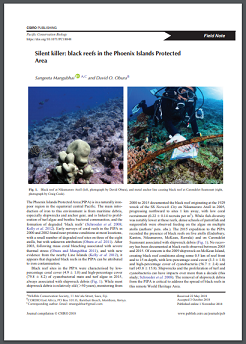
The Phoenix Islands Protected Area (PIPA) is in a naturally ironpoor region in the equatorial central Pacific. The main introduction of iron to this environment is from maritime debris, especially shipwrecks and anchor gear, and is linked to proliferation of turf algae and benthic bacterial communities, and the formation of degraded ‘black reefs’...
Links
Publication














